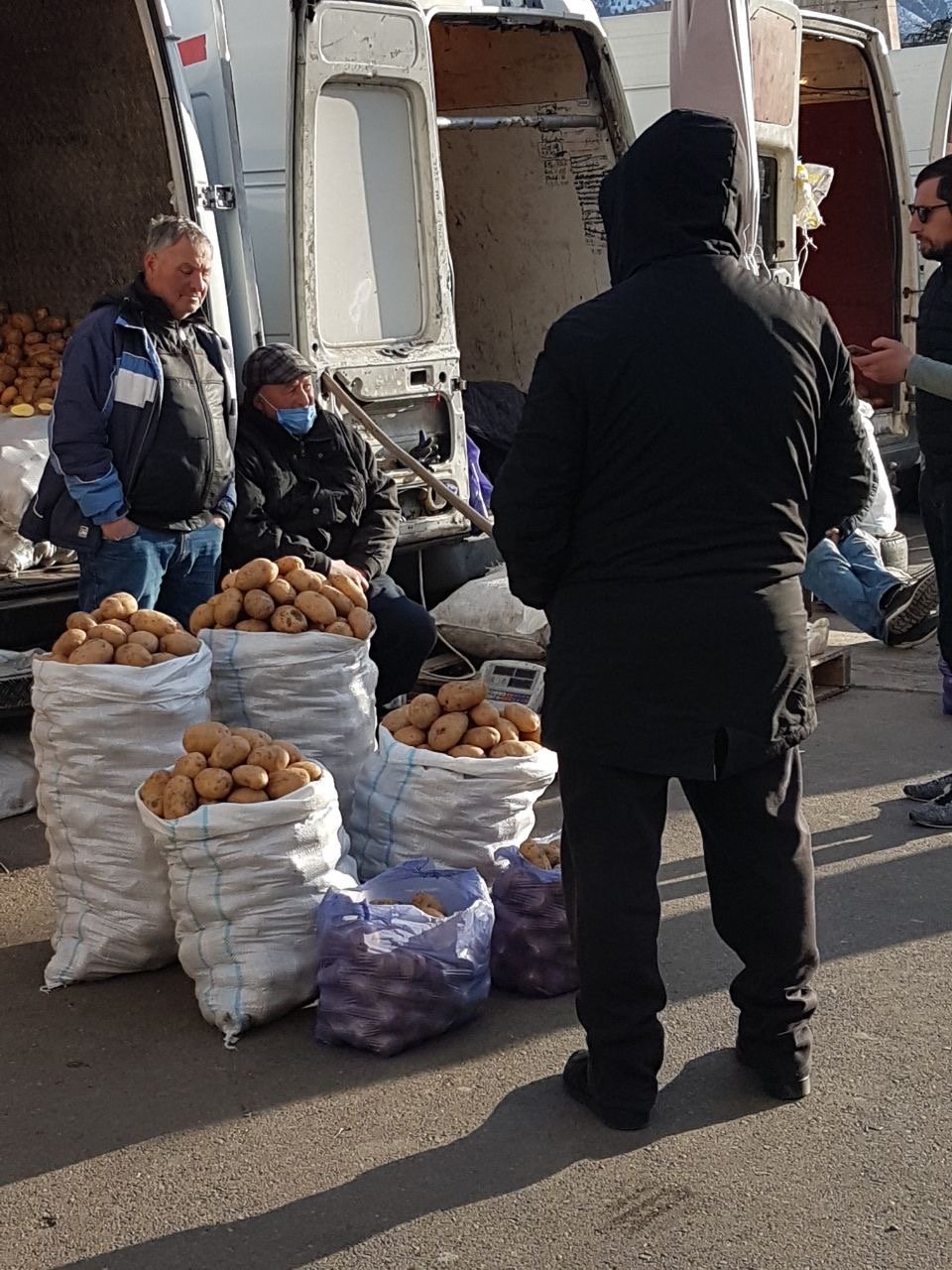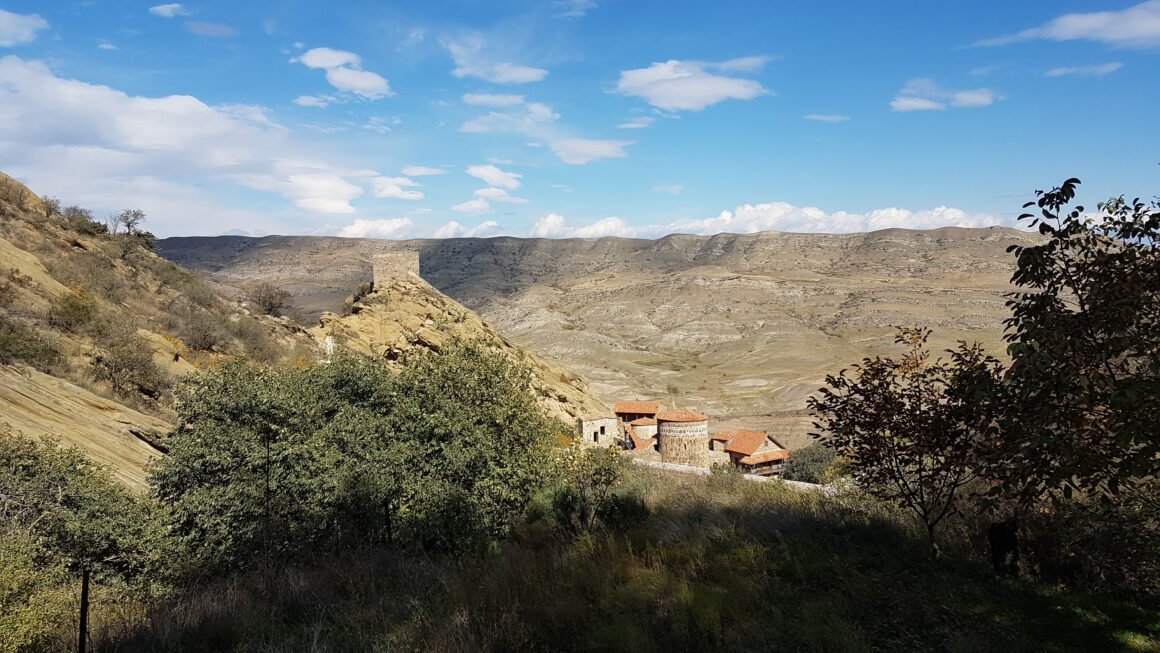From the Michael School in Tbilisi (Georgia)
By Janette Gülker-Neuhaus
This spring, my stay in Georgia and at the Michael School was marked by new conditions. There was an unusually deep winter in March and the impact of the Ukraine war by Russia was very present.
Daily snow and sleet lasted into April. It was often bitterly cold and the fall winds swept through the city. Children and young people stayed at home for weeks because of the weather conditions. Some teachers really couldn’t come because there is no snow removal service in their area.
On the streets of Tbilisi, the Russian language is suddenly very present. Young Russians, some with their families, also numerous Ukrainians and people from other Slavic countries are changing the familiar cityscape. Most Georgians have little sympathy for the Russian guests – the suspicion is too deep-seated. Why are these many Russian young people coming to Georgia all at once?
I myself, for the first time since my numerous visits to this country, am occasionally mistaken for a Russian and frequently for a Ukrainian. Some times even compassionate Georgians want to slip me a few lari. Do I really look that needy?
In the meantime, the school is sanding, hammering, painting and repairing alongside lessons. The long-planned renovation work is finally getting underway. Marina Shostak, the founder and principal of the Michael School and her team manage to hire craftsmen for this work, who do their job more or less well. With the two younger women they fight their way through and they do their job well, especially Nini Gelashvili (responsible for administration) and Tamta Tatulashvili (psychologist and responsible for pedagogy), who do not let themselves be distracted and actively face the new situation.
Within a few weeks, the cost of daily living has risen enormously, with trips by metro, bus and marching routka increasing by as much as 100%. Prices for electricity and heating have also been raised mightily, and even basic foodstuffs such as bread, vegetables, cereals and dairy products have become a lot more expensive. For the many people whose income is at the lower limit, this means a major challenge.
I am touched to see how the Michael School community is becoming more and more a community of destiny, not least because of the losses and difficulties. They belong together, the teachers and students of the first hour and all the following children and adults. Children, teachers and parents know that they can rely on each other. They feel united in the effort to be a school and place for the children and youth with special needs. The older ones help with the daily chores, clean vegetables, take care of the garbage, clean up the yard and feel jointly responsible for the well-being of the younger ones.
I may say from experience that Michael’s School is a love-filled community.
Everyone keeps giving their best and yet it doesn’t seem to be enough. Through my observations in the classes, it became very clear to all of us how challenging the children are and how necessary even more intensive support and therapeutic offers are. In this context, the wish arose for a so-called sensory garden, in which the children, accompanied by adults, can experience different sensory impressions on a daily basis and thus strengthen their self-experience. The teachers themselves need encouragement and suggestions on how to arrive at curative intuitions. They are in urgent need of better wages for their livelihood. While the children’s parents are grateful that the Michael School exists, they are mostly hesitant with their support work, their courage, and their certainty that this cause is worth spending time, energy, and money on.
Once again, I have the good fortune to experience day after day over a period of weeks how everyone strives for good cooperation, for a fruitful school life. Patience is great and so is the potential for suffering. Rarely is a line drawn that makes it clear that this is as far as it goes. The teachers in particular demand an immense amount of themselves in order to be faithful and loving companions to the children.
The sun’s rays, which already warm us in between, awaken the children’s spirits. Suddenly, boisterous students show up and whoops of joy rise high into the greening trees and bushes. With their good humor they also reach the adults. The worries about life becoming more expensive every day and about the uncertainty of the future are blown away – at least for a while.
A small but very dedicated continuing education seminar meets weekly at the Michael School to work together and at intervals for block seminars. I am lucky and can work with the five students on the topic of ‘The twelve senses’. Warm, open and interested young people who dedicate themselves with joy and enthusiasm to curative education and anthroposophical topics. Among them is even a prospective priest of the Carmelite Order, which also runs curative education facilities in Georgia. I wonder if there is a future employee for the Michael School among them?
Some teachers will leave the school in the summer: Lali, who has been with us from the beginning and is a mainstay in the life of the school; Barbara, a German eurythmist who has faithfully assisted the school since 1998 with eurythmy lessons, eurythmy therapy and later also with chirophonetics; and finally Nino, the eighth grade class teacher. In addition to the respective personal reasons, the low earnings unfortunately also play a role. Despite the unique constant support of the Friends of Waldorf Education thanks to Nana Göbel, the salary is again not enough for a regular living. Some make do by taking on a part-time job, as they did in the 1990s when Georgia was in a state of upheaval. Others are looking around for better economic opportunities – which is all too understandable!
For the first time at this time, I am concerned that the Michael School may sooner or later no longer be able to sustain itself economically. No further support is in sight from the school authorities. Unfortunately, a school for children and young people with extreme support needs finds no lobby at all in Georgia. Of course, the Michael School can always transform into a good quality day center and thus continue to exist. But what then becomes of the school impulse? Providing all of these special children with a school education was and is the impetus of the Michael School and the faculty is still committed to this goal. I wish them and the school very much that they make it!
As the weather gets nicer and the sun warms, new spirits awaken, hope and confidence return.
The spring bazaar brings everyone together, a sensory garden with many possibilities for sensory experiences is planned and the first steps are taken. We are collecting donations for the further steps.
Yes, what’s next?
If anyone has any ideas, please feel free to contact me: janette@guelker-neuhaus.de
Welcome: At the upcoming 2022 Autumn Conference at the Goetheanum, Marina, Nini, Tamta and I will offer a working group: How can a healthy generational change be shaped?
With warm and hopeful greetings!
Yours Janette Gülker-Neuhaus from Everswinkel/Germany, 01.05.2022
Council contact person: Sonja Zausch, s.zausch@inclusivesocial.org









